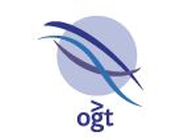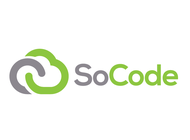$1m to fund new Ebola test
Life Sciences
- Date 19 Dec 2014
- Sectors Life Sciences
Diagnosing Ebola, from a logistical perspective, is extremely challenging. Particularly in rural areas, it is a challenge to get patients to a clinic to have their blood drawn – and it must then be transferred to a lab and tested on specialty instrumentation by trained technicians. When results are obtained, health workers must then find the patient, who, if infected, could already be spreading the virus. Hours or days may pass between taking a blood sample and providing medical treatment.
With this new device, a minimally trained health worker will be able to administer and run the test, without a lab, and get results within an hour. What’s more, as a point-of-care device, potential patients don’t have to go to clinics – the test can be taken to them.
The device will be a handheld, single-use disposable device that is smaller than a deck of cards. It simply requires a health worker to prick a patient’s finger and directly apply a droplet of blood on to the device. All aspects of the diagnostic assay are then fully integrated inside the device. The entire process will be completed in 45 minutes.
Marcus Lovell Smith, CEO of Diagnostics For All, said: “We are thrilled to be working with Cambridge Consultants on this, having collaborated on previous projects. This time we are racing to combat a deadly epidemic. When we wanted to dramatically accelerate this non-instrumented molecular diagnostic platform, we knew that Cambridge Consultants – with its extensive expertise in diagnostic product development – would be a key partner.”
David Chastain, programme manager at Cambridge Consultants, said: “Simple, low-cost testing tools that require minimal training to use are becoming essential in developing countries where the virus outbreak is most severe. The combination of our systems design, mechanical engineering and human factors skills with Diagnostics For All’s vision and expertise in molecular diagnostics can help transform the way that health workers provide point-of-care diagnosis – and subsequent treatment – in at-risk areas.”
The target cost for the new device – which is expected to be developed, produced and in field testing within six months – is less than $10 per cartridge.
Cambridge Consultants’ world-class engineering teams in Cambridge (UK), Boston (USA) and Singapore design and develop cutting-edge technology for the world’s leading companies and innovative start-ups. The firm has a 50-year track record of helping clients get breakthrough products to market fast – from the creation of concepts through to commercialisation. Its medical technology product development work includes diagnostic, surgical and drug delivery devices as well as digital health technologies.



